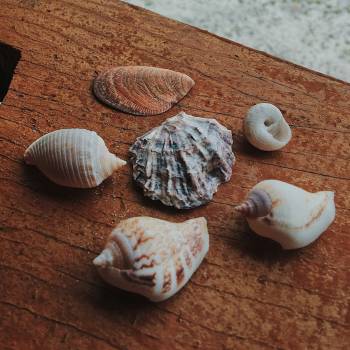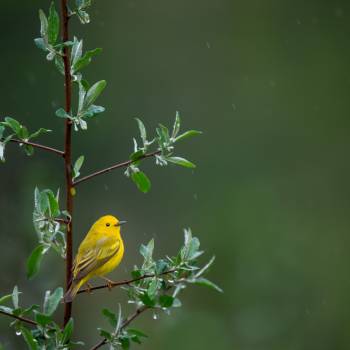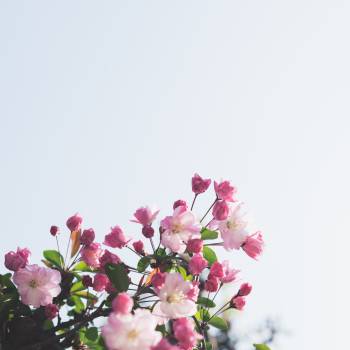I begin this article by praising Allah subhanahu wa ta'ala for allowing us to witness Ramadan this year and facilitated for us to do an abundance of good deeds in that blessed month. May Allah accept them from us, and allow us to meet Ramadan in many years to come. Aameen.
As we move further and further away from Ramadan, it’s so important for us to not lose the khayr (goodness) that we diligently worked on in that month. We accumulated hours of ‘ibaadah — fasting, standing in Taraweeh prayers, reciting the Qur’an, supplicating to Allah, and many other forms of dzikrullah in our pursuit of Allah’s Ridha (Pleasure) and His Reward.
So what a huge calamity if all of these hasanat (rewards for our good deeds) that we worked so hard on are wiped away completely.
Hang on, can a Muslim loses his hasanat?
🌸 A parable in the Qur’an regarding lost hasanat
Just like how good deeds can wipe away bad deeds, there are also bad deeds that can wipe away good deeds. There’s an example Allah gives us in the Qur’an regarding this matter. He subhanahu wa ta'ala says:
“Would any of you wish to have a garden with date-palms and vines, with rivers flowing underneath, and all kinds of fruits for him therein; while he is stricken with old age, and his children are weak; then it is struck with a fiery whirlwind so that it is burnt? Thus does Allah make clear His ayaat to you that you may give thought.” [Surah Al-Baqarah 2: 266]
“Would any of you wish to have a garden with date-palms and vines, with rivers flowing underneath, and all kinds of fruits for him therein”
Allah subhanahu wa ta'ala begins this ayah by asking: Does any of us like to own a garden that is full of date trees, grape vines, and many other types of crops, with rivers flowing underneath it? It gives us an imaginary of a large, lush garden, with all sorts of vegetation that are ready to be harvested by the one who owns it.
But afterwards, the tone of the ayah switches.
“while he is stricken with old age, and his children are weak”
Now Allah gives us an imagery that the owner of this garden has grown into old age. After putting years, and years of hard work and effort on his garden, the owner now becomes old and weak, and thus is very much dependent on the garden for sustenance and survival. He also has a family and children who still depend on him.
“then it is struck with a fiery whirlwind, so that it is burnt?”
All of a sudden, the man’s garden is struck by a hurricane, and within that hurricane is a fire! So this whole beautiful garden that had so many fruits, crops, and vegetations got destroyed and burnt completely to the ground. But this person is already in his old age, and he desperately needs his garden to survive! How is he going to rebuild it now? Imagine the overwhelming grief and total desperation he must have felt!
This ayah is actually a parable of a person who has done a lot of good deeds, who collects a lot of hasanat in his life — so much so that his hasanat can be described as a lush garden. The abundance of fruits, vegetations, and other crops are a symbolic of this person’s khayr, as well as the abundance of his hasanat.
And when Allah gives us the imagery that the owner of the garden has reached old age, it’s actually a parable when a person meets and stands before Allah ta'ala on the Day of Judgment; when he’s desperately and most in need of his hasanat.
But what happens?
His hasanat are all destroyed. They’re all gone.
And he can no longer return to the dunya to rebuild his garden of hasanat.
So he stands before Al-Malik on the Day of Judgment, bringing zero khayr with him.
Subhana Allah, may Allah protect us from this great loss!
🌸 What destroys a person’s hasanat?
Imam Ibn Kathir rahimahullah wrote in his tafseer regarding the aforementioned ayah that Ibn ‘Abbas radhi Allahu ‘anhu said:
“This is an example set for a deed — For a wealthy man who works in Allah's Ridha, and then Allah sends shaytan to him, and he works in disobedience, until he annuls his good works.”
Meaning, this person began by doing many good deeds, but unfortunately at one point in his life, he started committing himself to evil deeds, and more evil deeds, until all of his previous khayr were cancelled out. Yes, there are certain sins that can wipe away our gardens of hasanat! Some of them are recorded in the following authentic hadith:
Rasulullah salla Allahu ‘alayhi wa sallam (ﷺ) once asked his companions radhi Allahu ‘anhum: “Do you know who is the bankrupt?” The companions replied: “The one without money or goods is bankrupt.” Rasululllah ﷺ corrected them, saying:
“Verily, the bankrupt of my nation are those who come on the Day of Resurrection with prayers, fasting, and charity, but also with:
- insults,
- slander,
- unlawfully consuming wealth of others,
- shedding blood, and
- beating others.
The oppressed will each be given from his good deeds. If his good deeds run out before justice is fulfilled, then their sins will be cast upon him, and he will be thrown into the Hellfire.” [Sahih Muslim 2581]
This person is labelled as a bankrupt because he used to have a lot of hasanat to begin with. But he lost them all because he insulted people, slandered them, took their wealth without rights, and beat up others. So those whom he oppressed will take his hasanat away on the Day of Judgement, until all of his hasanat are depleted, and he ends up as a truly bankrupt person in the akhirah.
What we learn from this hadith is that oppression and wronging others are some of the reasons why a Muslim’s good deeds are wiped away. So be careful not to oppress others. Steer away from gossiping, from backbiting, and from slandering people. One of the sins that we often belittle are the sins of the tongue, yet they have major repercussions in the akhirah!
🌸 Preserve our hasanah until it reaches akhirah
Allah subhanahu wa ta'ala says: “Whoever brings a good deed shall have ten times the like thereof to his credit.” [Surah Al-An’am 6: 160]
This ayah implies that a person could possibly lose his good deeds before he stands before Allah; because in order for Allah to multiply our good deeds, we have to come with them on the Day of Judgment.
And this is perhaps one of the reasons why Imam Ibn Al-Qayyim rahimahullah said that it’s not just about doing good deeds, but also guarding them. We need to reach the Day of Judgment having preserved good deeds.
Please also remember that our Rabb is Al-Ghafoor Ar-Rahim. Know that when a person sincerely repents to Allah from a bad deed, even the ones that can wipe away good deeds, He subhanahu wa ta'ala will restore those hasanat, in shaa Allah. Never give up on the Rahmah of Allah.
We ask Allah subhanahu wa ta'ala to forgive our sins, and allow us to reach akhirah with an abundance of good deeds. May Allah grant us true success, and protect us from bankruptcy on the Day of Judgment.
آمـــــــــين
Your sister in Deen,
Aida Msr 🌸
___
References:
- Tafsir Ibn Kathir
- Sunnah.com
- AbuAminaElias.com
 Aida Masuri Mustafa
Aida Masuri Mustafa 




